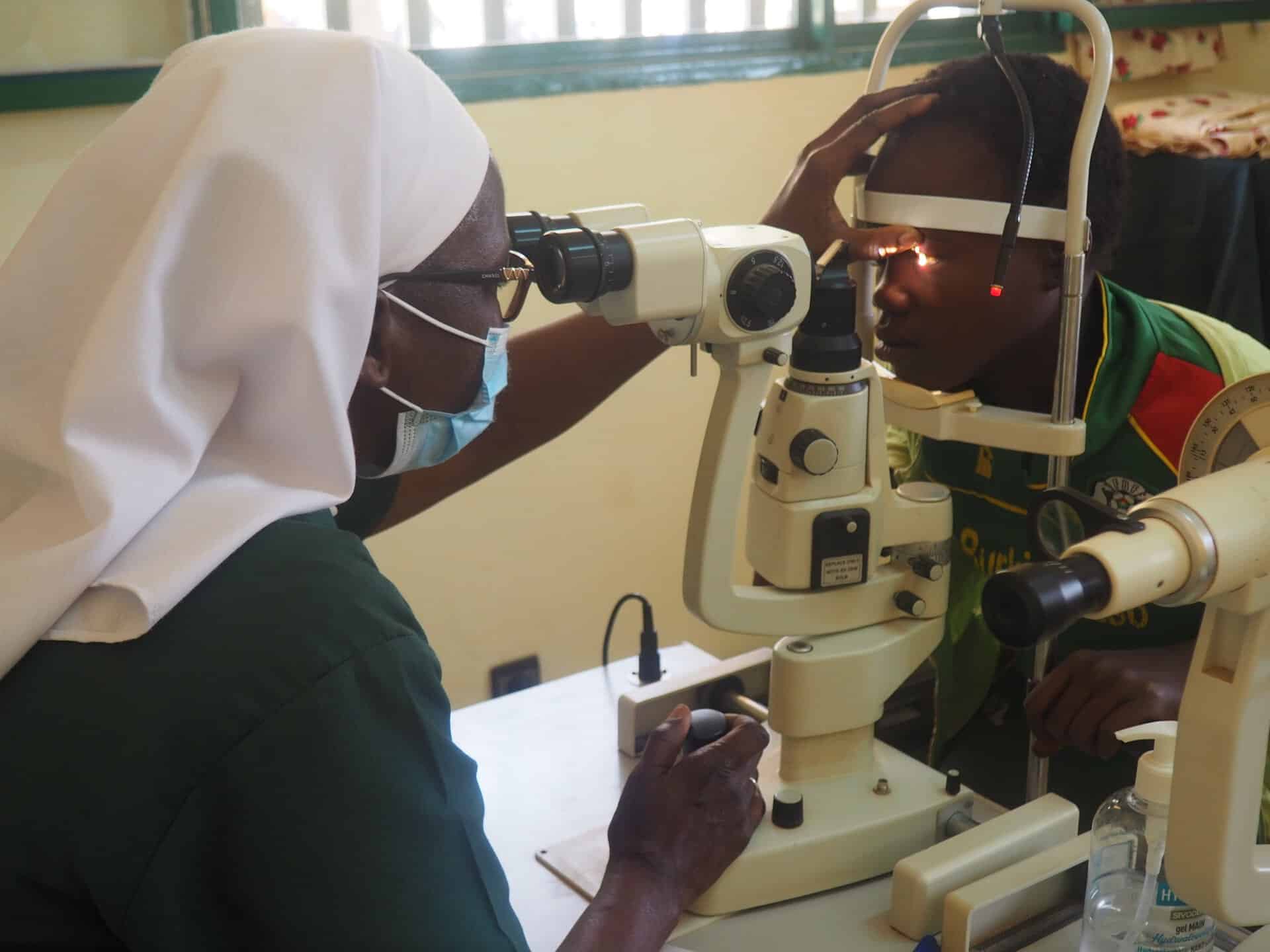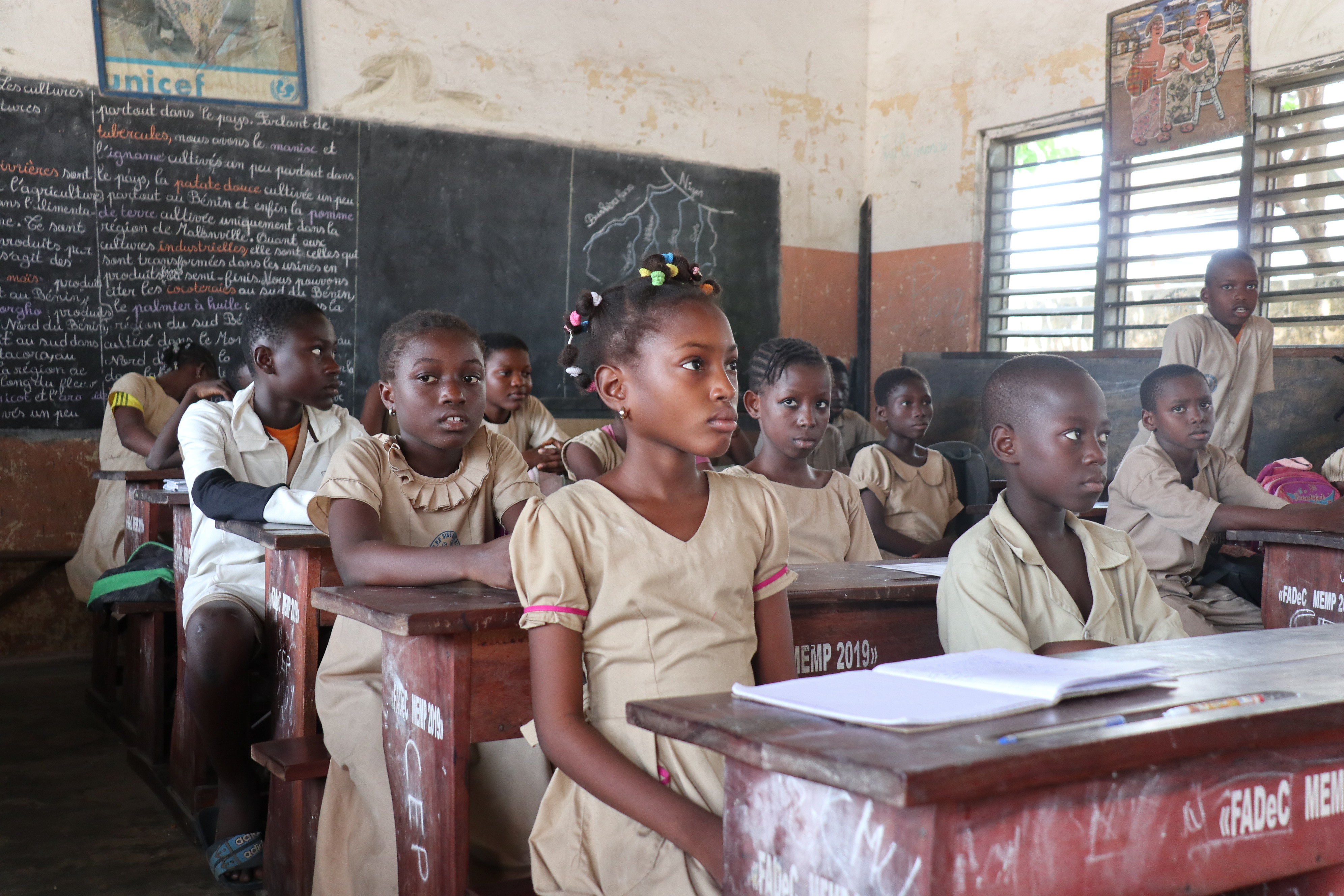Published on 04/09/2020 by Céline Delbecque, in L'Express
Photo credit: Vincent Reynaud-Lacroze
The coronavirus pandemic has worsened the lives of thousands of girls around the world, who face multiple forms of violence.
This is one of the many "perverse effects" of confinement: at the height of the crisis, some 1.5 billion pupils were affected by the closure of their school, and millions of them may never return to school this autumn. In the poorest countries, schooling is no longer a priority," explains Charles-Emmanuel Ballanger, Aide et Action's International Director General.
"About 25 million children could leave the school system permanently after the crisis, including 11.2 million girls," Farah Malek-Bakouche, international advocacy officer at Unicef France, told L'Express. "And our concerns are particularly focused on the latter," says Charles-Emmanuel Ballanger. "Because without school, these little girls are left to their own devices," he says.
Unprotected by the education system, these young women will be "much more exposed to sexual and physical violence, forced marriages, early pregnancies or excisions", explains the association leader, denouncing an "extremely worrying" situation. The first estimates of UNICEF are clear: according to the organization, the de-schooling of young girls could result in seven million additional unwanted pregnancies over ten years, 13 million forced marriages, and two million genital mutilations worldwide.
"Assumed load".
"This pandemic has only aggravated the problem of schooling for young girls in the world," Julien Beauhaire, communications officer at the NGO Plan International, explains for L'Express. "In a crisis situation, as here with Covid, young girls face a risk of dropping out of school that is two and a half times higher than that of boys," he explains, recalling that 743 million schoolgirls were deprived of education during the coronavirus.
For Charles-Emmanuel Ballanger, these conditions of exclusion are multiple. "In the midst of the crisis, girls are considered to be the first to have to stay at home, to help with housework or housekeeping," he says. "They are also quickly considered as an additional economic burden: a mouth to feed, a body to clothe... They become a supposed burden for the family, and their education is no longer the priority", summarizes the director of Aide et Action.
Digital access also deprives many girls of an education. "In families with little computer equipment, priority is given to the brother, the father, the man in general", stresses Farah Malek-Bakouche, who also believes that the digital divide "is not only technological". "It is believed that girls do not have the skills, that they are not made for technology or science. In times of confinement, they will stay at home, with all the risks that entails," she added.
"Absolutely catastrophic setback".
These "risks" are well known to the associations: the Ebola pandemic in sub-Saharan Africa from 2014 to 2016 is used in particular as a "model" by specialists to calculate the future impact of the coronavirus on young women in the years to come. For example, according to Unicef, the closure of schools in West Africa during Ebola contributed to a sharp rise in cases of neglect, child labour, sexual assault and teenage pregnancy. In Sierra Leone, the number of underage pregnancies during this period more than doubled to 14,000.
"Without income, parents are tempted to marry off their daughters earlier: at the same time, they are relieved of a supposed economic burden, while sometimes receiving a sum from the spouse's family," explains Farah Malek-Bakouche. At the same time, while health centres are closing and schools are no longer fulfilling their preventive role, the number of early pregnancies is exploding. "During the coronavirus, 47 million women did not have access to contraceptives," says Julien Beauhaire. "This is an absolutely catastrophic step backwards, which leads us to fear a clear increase in sexually transmitted diseases, illegal abortions and, unfortunately, early pregnancies", he regrets.
During the critical phase of the crisis, restricted access to health services also had serious consequences for adolescent girls and women - due to travel restrictions, many girls were unable to access such services even though they were available. "We saw young women with chronic illnesses, such as diabetes, who had no access to care," says Farah Malek-Bakouche.
"The school was also seen as a place of safety and socialisation, where young women in difficulty were listened to, and where their rights were respected. They learn to denounce, to refuse beatings, insults and violence", says Julien Beauhaire. Faced with such a high drop-out rate, "all this work is destroyed", he deplores.
Extreme emergency" situation
"But, although the situation is serious, this lack of schooling is not inevitable," Farah Malek-Bakouche points out. Faced with a situation of "extreme urgency", various organisations, including UNESCO, the Malala Fund, Plan International and Unicef, have issued various recommendations in a guide entitled Rebuilding Equality: A Guide to Getting Girls Back to School. These associations urge governments and the authorities concerned to take concrete measures to ensure the protection of children throughout the world.
"Unfortunately, the sinews of war are money," the advocacy officer told L'Express. "We must continue to involve communities, young girls and women in prevention, while rethinking the entire education system," she says. "There is also a lot of legislative work to be done," adds Farah Malek-Bakouche, indicating that it is "essential today to pass laws to prohibit child marriage, or to increase the age of compulsory education.
The majority of associations also asked for "data analysis" work. "We need real evaluation work to find out how many girls are affected by these phenomena, why, and how, so that we can base our work on concrete data," explains Farah Malek-Bakouche. In order to train first aiders to deal with disclosures of gender-based violence and to work with health services to support survivors of such violence, UNICEF has also published a pocket guide on gender-based violence.






